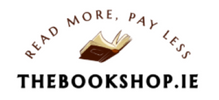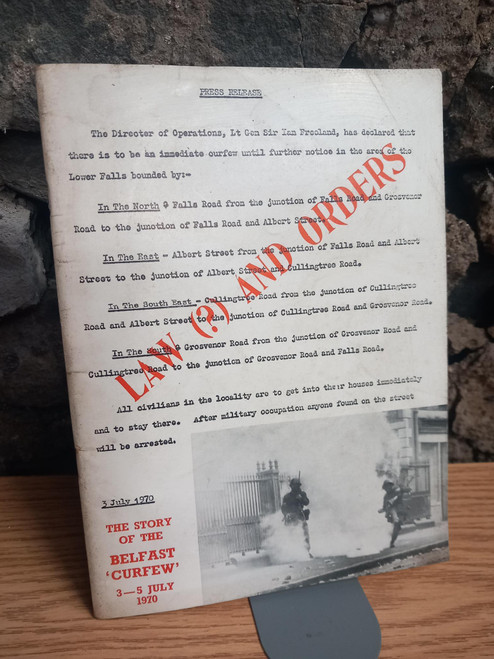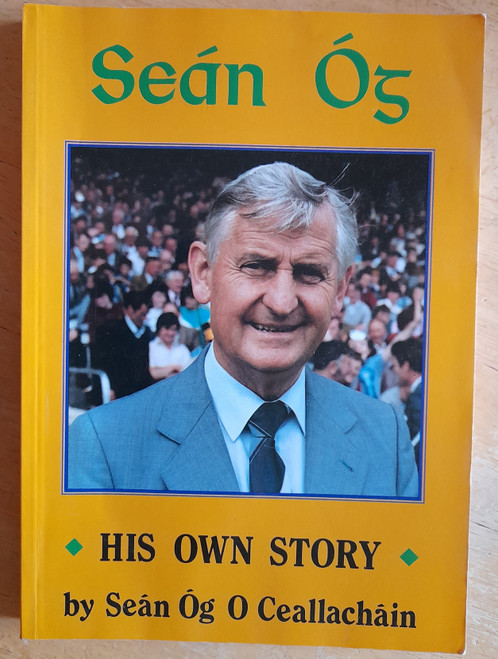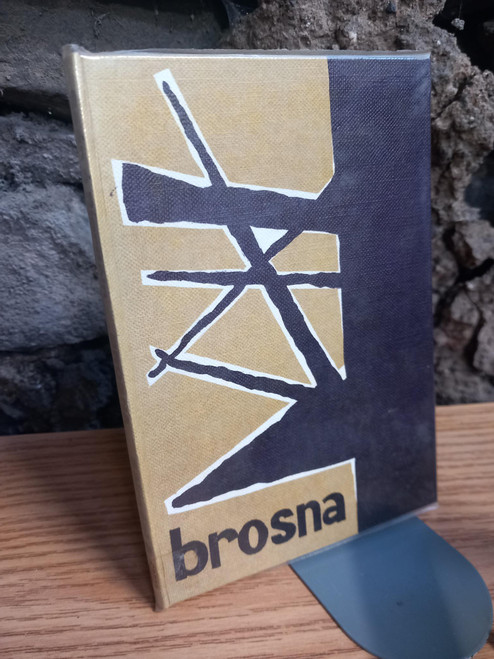Product Description
Uncommon.
A 48 page large format stapled booklet , centering on the events surrounding the hugely controversial Belfast (Falls Road) Curfew in 1970.
The Central Citizens’ Defence Committee was founded on August 16th 1969 on the initiative of Jim Sullivan, adjutant of the Belfast Command of the Irish Republican Army. Sullivan was its first Chair. It acted as the coordinating body for the various defence groups that had sprung up in the various areas in August 1969 and after. It rapidly expanded, and at one point, according to Paul Arthur, 95 delegates represented 75,000 people. The wide-ranging nature of the body can be seen in the fact that while Sullivan continued to play a leading role in it, it also included some of the local priests from St. Peter’s Cathedral and people connected to the Nationalist Party and to Gerry Fitt and Paddy Devlin, the Westminster and Stormont MPs for the area. It wasn’t a left organisation, but it included significant left-wing elements, and its account of the Falls curfew certainly deserves a place in our archive.
This document was produced in September 1970. It was written by Seán Óg Ó Fearghail, with a foreword from Mícheál Ó Dathlaoich (Michael Dolley, a Member of the Royal Irish Academy and lecturer at Queen’s). The British Army believed Ó Dathlaoich to be the real author. The British Army were concerned enough by it to rapidly produce a detailed response that was sent to media outlets. The document starts with a brief historical overview; gives a detailed account of the events that led to the curfew and the curfew itself (one, it must be said, that downplays the extent of the resistance to the British army); and the second part of the document is a breakdown of the result of the CCDC’s survey of the residents, which was conducted by teams of mainly students, with the curfewed areas being broken up into different zones, as explained in the document. Although in many respects, a largely factual and narrative account, it does have a clear analysis, and lays the blame for what happened squarely at the door of the British Army for its overreaction, and the document accuses the army of implementing a pre-planned strategy.
The historical overview describes the social, economic and living conditions within the area, and stresses the religiosity of the people, as well as the large number of ex-British servicemen in the area. The account is at pains to stress the respectability of the area, reflecting the extent to which the Catholic church and the local social elite had become involved in the CCDC. It also provides a quick description of the civil rights campaign, the outbreak of the Troubles, and the weekend before the curfew (June 27th/28th), when serious sectarian violence had led to six deaths in the Crumlin Road and the Short Strand, with the emerging Provisionals responsible for them all, including that of a Catholic accidentally shot dead while cooperating with the Provisionals in the Short Strand. As noted already, the account of the incidents that led to the curfew blames the British Army for not ignoring the hurling of a few stones, and instead choosing to respond with CS gas, and repeatedly failing to back away from confrontation instead of further provoking it. It also notes the recklessness of army actions that endangered civilians, but also describes the throwing of homemade hand grenades at the military by the Provisionals that escalated the situation, and which they admitted to the Irish Times of July 7th 1970 had been a mistake. It stresses the contempt with which both the hierarchy and the troops on the ground treated both the CCDC and elected politcians trying to bring things to a halt – Devlin was threatened with death by troops holding him – and the mistreatment of civilians, their homes, and their property. At the same time, however, there is a reluctance to smear the names of entire army units, and it goes out of its way in part II, the survey, to point out that many of the soldiers behaved well. Among the headings for Part II of the hardships faced by civilians are Shortage of Food, Loss of Liberty, Financial Hardship, Cruelty to Animals, and Brutality of Troops.
 Euro
Euro
 British Pound
British Pound









